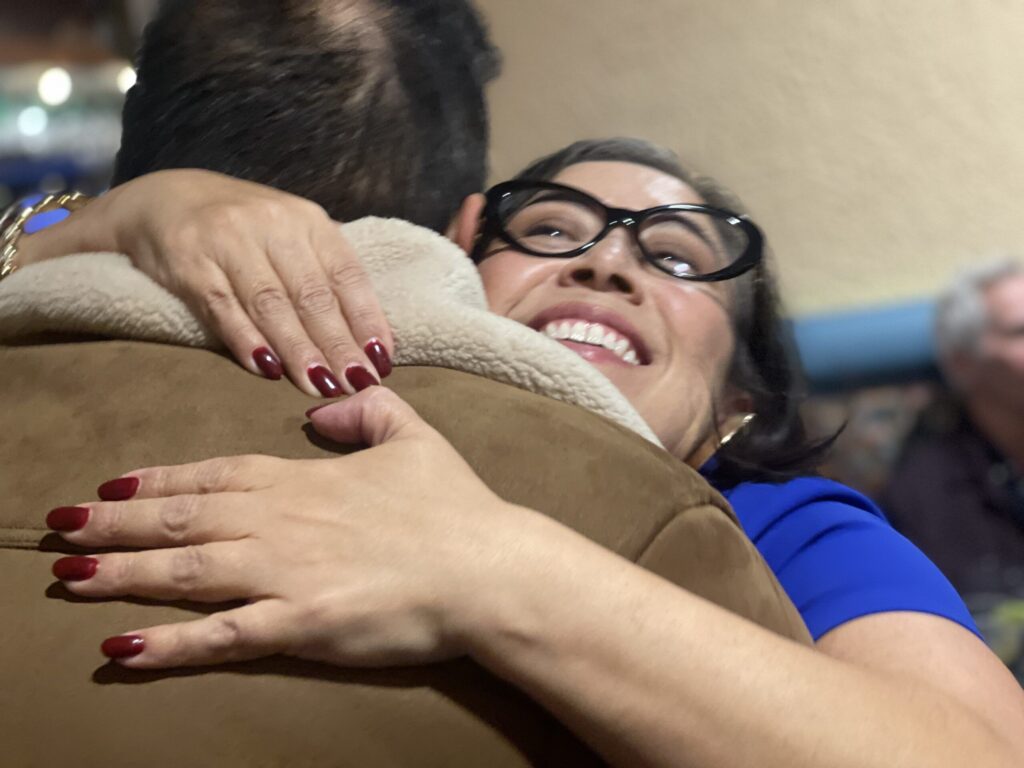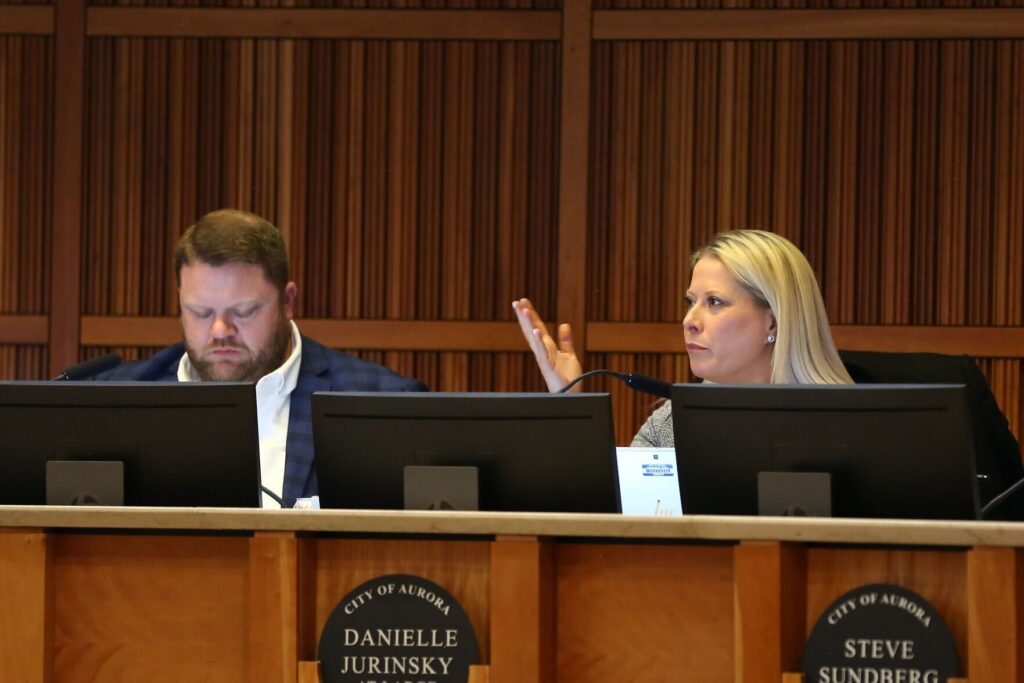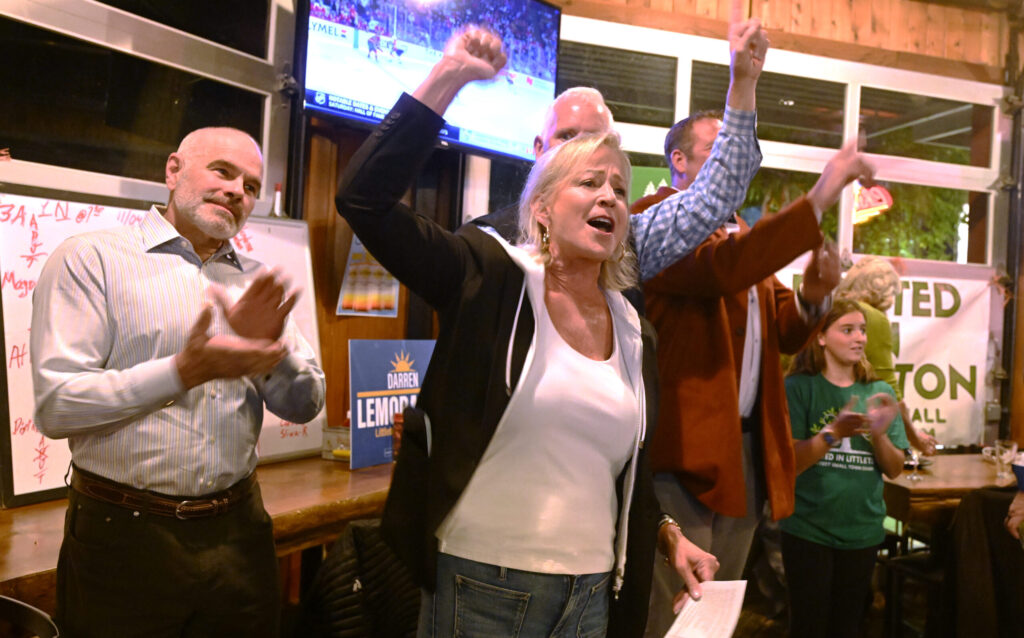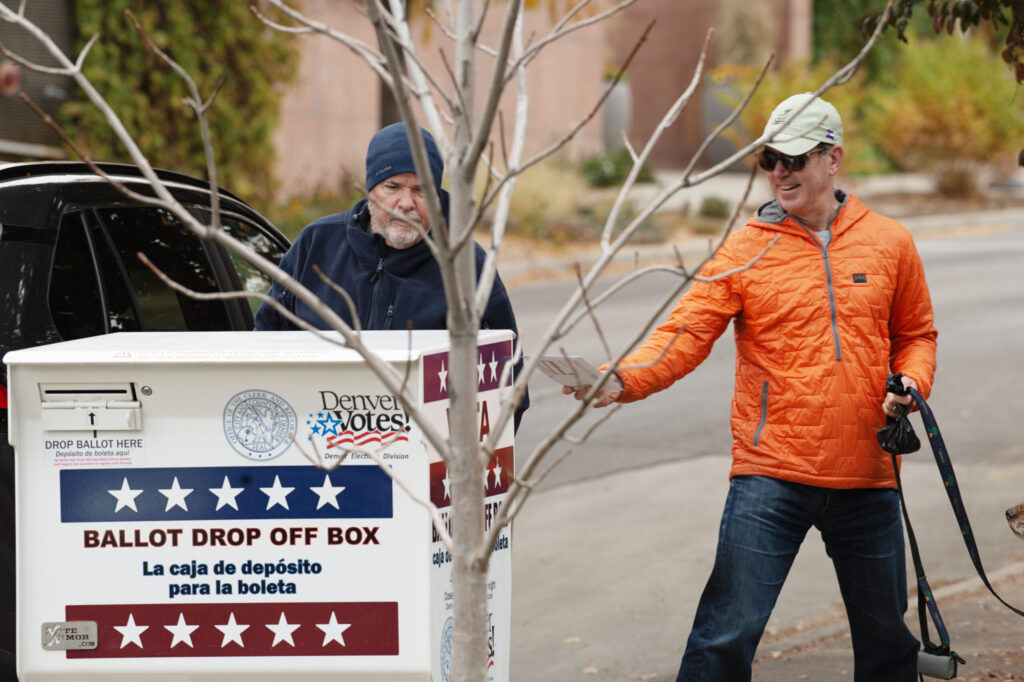Denver school board candidates discuss state testing, school choice | DENVER VOTERS GUIDE

Candidates for the Denver Public Schools Board of Education discussed transparency with the public, state testing and school choice in response to a Denver Gazette questionnaire.
In just three weeks, voters will decide who will represent them on the school board.
For the past four weeks, The Denver Gazette has published a number of the responses from each of the eight candidates.
Candidate Brittni Johnson did not respond to questionnaire.
In previous weeks, questions included the return of school resource officers, the discipline matrix, spending priorities, and a mill levy to support transportation costs, among others.
The latest state assessment data shows incremental and inconsistent academic improvement for Denver schools emerging from the pandemic with just 40% of students meeting or exceeding expectations in English and 30% in math. How much value do you place on testing and should schools be held accountable using achievement and growth measurements? And if not, what metric should be used?

Scott Baldermann (District 1): The district and the state place too much emphasis on standardized testing. It causes teachers to teach to the test and the last two months of school tend to be an afterthought effectively adding to “summer slide.” Standardized tests tell us what we already know – socioeconomic status has a direct correlation to achievement. I would prefer the district use real-time internal assessments in a non-punitive method to help students grow academically.

Marlene DeLaRosa (District 5): Student Achievement is one of the most important purposes for school, and state tests provide crucial insight into this. However, looking only at state achievement results doesn’t give a holistic picture of how we are doing to help students grow and learn. Growth scores offer a fuller picture of student development over time. Furthermore, holistic accountability should also consider improvements in graduation rates, attendance, and post-secondary readiness indicators like dual credit, AP/IB participation and success rates. A multifaceted approach ensures we capture a broader spectrum of student and school success, while also emphasizing the importance of rigorous academic achievement.

Charmaine Lindsay (District 5): I am not a believer in standardized testing. It has a discriminatory effect of Latino students who are not allowed to count scores of tests taken in Spanish, which are considerably higher than when the same students take the tests in English.
I believe some of the changes that have been implemented in the accountability system, specifically the changes made to graduation requirements, lower the reliance on standardized testing. I would also add certain measures into the accountability system that allows for understanding of schools or districts that serve a high number of underserved students as well as BIPOC students.
Kimberlee Sia (District 1): Schools should be held accountable using achievement and growth measurements. Standardized testing, such as the annual CMAS assessment, is not the only metric I would use to evaluate school and district academic performance. I would also want to regularly review other academic data reports (e.g., interim assessments, ACCESS, READ Act, AP test performance, progress toward graduation requirements) reported by sub-groups for each school and the district. I would also want reports on non-academic data points impacting student achievement, (e.g., student/staff attendance, in-/out-of-school suspensions, annual student/staff retention data by school, support service percentages disaggregated by sub-groups).

Adam Slutzker (District 5): Testing is just one small metric in determining student success and I don’t believe we should make impactful decisions based solely on that metric. We should be listening to our families and school staff and using their feedback to better determine whether or not our students are showing academic growth.
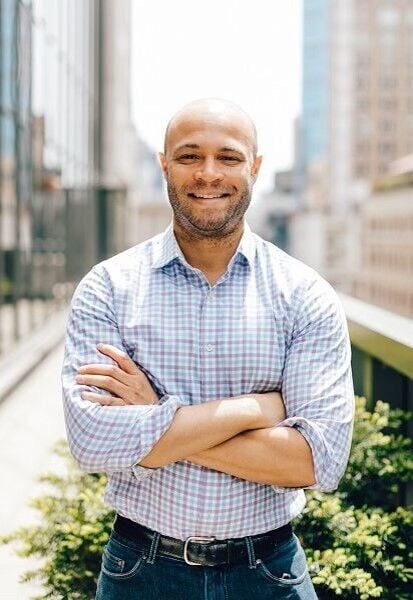
Kwame Spearman (At-large): The current process of measuring accountability is broken and urgently needs to be reimagined to align with contemporary realities. The best systems in the world reframe the traditional accountability approach to one focused on “continuous improvement.” Denver has the opportunity to lead the way in building a learning-oriented system, rather than a punitive one. New research suggests that social-emotional development, belonging, and other metrics are just as critical to understanding as math and reading scores. There are a wide variety of inputs we should be bringing into this conversation (teacher retention, etc) that must be built into a new framework.

John Youngquist (At-large): Colorado schools are required to administer CMAS, P/SAT, and ACCESS (English learners), as a part of the accountability protocol. A combination of achievement and growth metrics are applied in the current School Performance Framework. While these are viewed by many as culturally biased instruments not fully representative of student learning, we must have effective ways to objectively measure student learning. Results matter. In addition to these traditional academic assessments that are required by the state, DPS should consider identifying alternative methods of assessment. These may include performance-based capstones, portfolios, or standards-based proficiency scales like those used in neighboring districts.
Colorado is a school choice state, giving students the right to enroll in any public school regardless of where they live. Do you value this parental right and if so, how would you support transporting students to the school of their choice?
Baldermann: Yes, I support a parent or guardian choosing a school that is best for their child. The bus driver shortage is having a large impact on offering yellow bus services. Declining enrollment is also impacting transportation because buses, similar to our schools, are underutilized which is costly. Thoughtfully merging schools with a focus on transportation efficiency must be a priority to increase buses for students.
DeLaRosa: School choice is vital, because it recognizes diverse learning styles and interests-families may want STEM or the Arts; Montessori or exceptional neighborhood schools. School choice isn’t an “either-or” but a “both-and” approach, ensuring every student finds their best educational fit. As a parent, I sometimes sent my children to a citywide magnet, sometimes to a neighborhood school. Even though I had twins, they needed different kinds of schools to thrive. Supporting choice means removing barriers; therefore, I advocate for transportation, particularly for students qualifying for free and reduced-price lunch. This ensures equity, making choice truly accessible for all.
Lindsay: As a family law attorney, I see the need for choice. I recognize the idea that choice benefits high income families and is part of the reason for low enrollment in neighborhood schools. I also deal with only low-income families where there are multiple children from different parents, split custody, and gentrification that cause families to have to move or share children who must travel between houses. Being able to choose a school that is accessible to both parents is a huge issue. I don’t think DPS should provide transportation to students who choice into a school.
Sia: I support the parental right to enroll students in any school regardless of where they live. Every family deserves access to high-quality public school options to meet their individual needs. If transportation is a barrier because a school of choice is not within walking distance of their home, DPS should explore innovative solutions such as creating routes similar to those used by the Success Express shuttles, ride-share options, and transportation partnerships. I would also support the DPS transportation team and RTD collaborating to enhance bus routes, prioritize student safety during transportation, and address any infrastructure issues.
Slutzker: I believe the school choice system needs to be amended to give first opportunities for enrollment to lower income families and those with documented student educational or social/emotional needs first. The current system often results in inadvertent self-sorting and less diverse schools.
Spearman: We need excellent schools, with diverse learning environments in every neighborhood so parents can choose where to send their children. I “choiced” into East High School and its environment allowed me to thrive. Every family deserves the best environment for their child. 50% of parents in DPS leverage some form of choice. We need to ensure the choice process is equitable and does not worsen our staggering achievement gap between our students. That starts with great schools in every neighborhood – so families that lack adequate transportation can partake in the choice process.
Youngquist: School choice is a statutory requirement and has become an expectation of many DPS parents. Families are interested having excellent schools in every neighborhood and choices to meet their children’s’ needs. I value and appreciate this. Currently, transportation to magnet and other schools is limited and promotes inequities. While we know the cost of busing students to any school they choose would be exorbitant, it is a priority of mine to ensure DPS redesigns its transportation system to more effectively support parents with choices that the district purports to make available.
In the aftermath of the East High shooting, the DPS board crafted a policy behind closed doors and a judge concluded the district violated the state’s open meeting laws. Do you agree with the judge’s decision? If yes, what steps would you take as an elected board member to ensure transparency. If you do not agree with the judge’s decision, please explain why not.
Baldermann: Yes, the judge was correct in their decision that the board should release the recording. I will write a board policy that prevents the board from entering into executive sessions except for items specifically required by law (personnel matters, student privacy, legal advice, etc). Items that are allowed, but not required, by state statute would be prohibited through the policy.
DeLaRosa: Yes, I do agree with the legal decision made by the higher authority. As an elected board member, I will always work for transparency for public meetings in addition to adhering to CORA policies. Transparency is necessary for meaningful engagement with teachers, students, families, and the community.
Lindsay: The board voted 7-0 to release the executive session. Many of us expressed concern about violating the open meeting law during the executive session. I, along with several of my board colleagues, have committed to transparency in the future and we as a board have not held an executive session since March 22. Yes I agree with the judge’s decision.
Sia: I agree with the judge’s conclusion that the DPS board violated Colorado’s open meeting laws. The board should have been familiar with the state’s open meeting laws and moved out of the executive session. As an elected official, I would ensure every meeting is properly publicized and recorded when required. I believe openly sharing information and transparency are key contributors to a collaborative relationship between the school district and the community. As a public institution funded by taxpayers, access to information and transparency allows the community to hold us accountable.
Slutzker: Yes, I support the judge’s decision, as elected officials the board should follow open meeting laws especially in contentious situations.
Spearman: I 100% agree with the judge’s decision. The board’s inability to properly connect and be transparent with the public following the East shooting is one of the key reasons why you see Resign DPS signs across our city. Generally, unless speaking about specific HR related issues, all board meetings should be public and open to the public. We need to evolve how we conduct our meetings to better allow for public opinion to be voiced. As a board member, I can promise communication is a two way street and sometimes it is best to just listen to our community.
Youngquist: Yes, I do agree with the judge’s decision. It is clear that the purpose of the meeting was to craft policy, a violation of the Colorado Open Meetings Law. It is also clear that there were topics of conversation that would have been astonishing to the audience if discussed in an open meeting. I would require a legal review and a moment of conversation with directors representing the content of a proposed executive session, allowing each member to either agree or disagree on whether the content of the meeting and the process used to schedule the meeting aligns with law.





